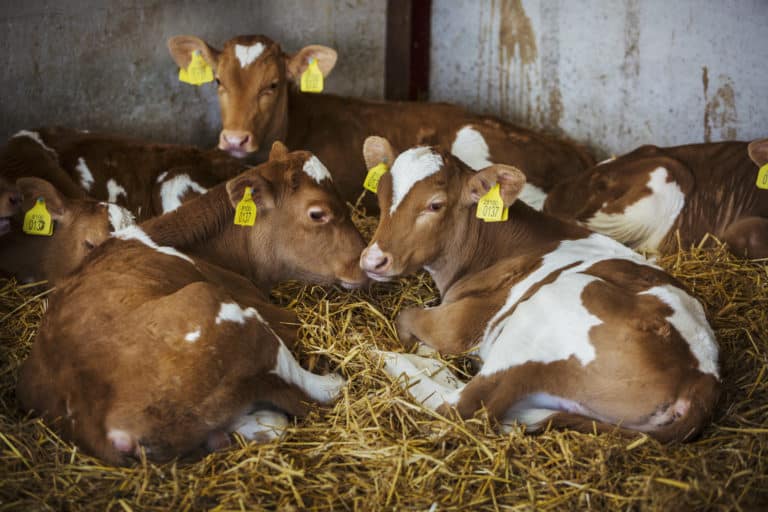Happy February!
I am overjoyed by the fact that this winter has so far been one with wonderful higher temperatures than normal. Less layering than 5 layers deep. My shoulders appreciate the less weight from all the added garments needed to keep one warm in subzero temps.
With that being said, we have had some challenges with warmer weather and the majority of these are respiratory issues.
So how do we react to those animals with Respiratory?
The best way to treat respiratory illness is to prevent it.
PREVENTION is the key. Some tips for prevention:
Do we have a good colostrum program in place? Do these calves have enough maternal antibodies circulating in their bodies to help prevent additional stress from bacterial or viral pathogens.
Do you have a good environmental / sanitation program, both in your maternity pens and calf housing area? This will also help reduce pathogen loads. Are your calves housed near older animals that could be possibly shedding a viral / bacterial/ protozoa events? Reducing the pathogen loads, calves will have a better chance for your feeding program to thrive.
Do you provide enough quality feed; milk diet & grain to support both the immune system and seasonal challenges?
How do we reduce management stressors as in feed changes, housing, group /pen changes vaccinations or dehorning practices?
How does your weaning program work for your calves, not for you but what are your calves telling you? Be observant.
What type of ventilation do you use to provide adequate fresh air to calves without causing a draft?
If TREATMENT is needed:
Do you record ID, medications and amount given?
Do you track how effective the treatment worked? Did the animal respond to the treatment given? If not have you consulted with your Veterinarian? Maybe a revision of your treatment protocol is slated.
Does your feeding equipment lead you to suspect aspiration pneumonia? Do your nipples drip rapidly if dipped upside down?
Calves less than two weeks old with scours may have a secondary respiratory disease. 1) reluctant to drink all it’s allocated milk 2) unusually slow drinking of its milk.
Do your bottle calves take breaks in between suckling. Do pail fed calves keep raising their heads from the pails? These are signs that something isn’t right.
Initially these calves will not have an elevated temperature, if over the next 24 hours they may spike a temp of over 104 These are usually bacterial infection.
EARLY DETECTION: is the key to a higher rate of recovery rate.
Weaning, pen moves, feed changes are all stressors that may create an onset of respiratory events. Calves that experience a high level of stress are typically the ones that come down with pneumonia. Do whatever you can to reduce these stressors.
Make sure to keep your safety in mind also along with precautions of vaccine and antibiotic useage and biosecurity measures.
Here is to less respiratory events in the months ahead of us!!!!
Minnie

